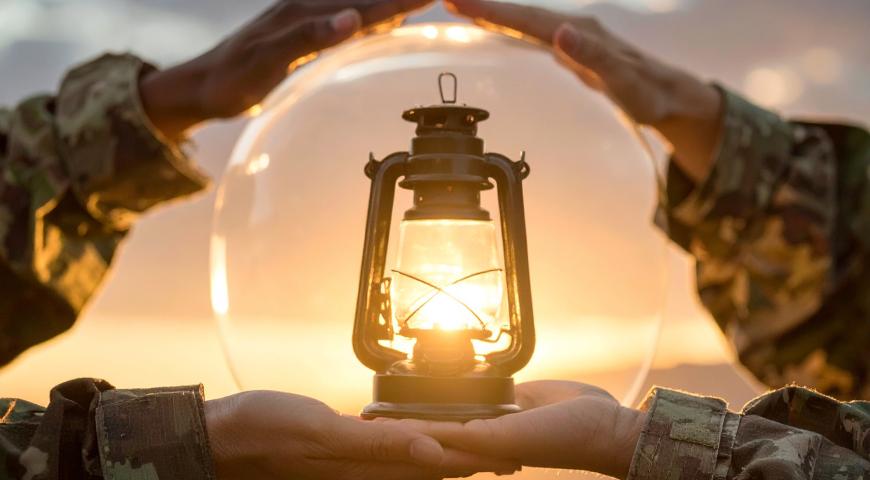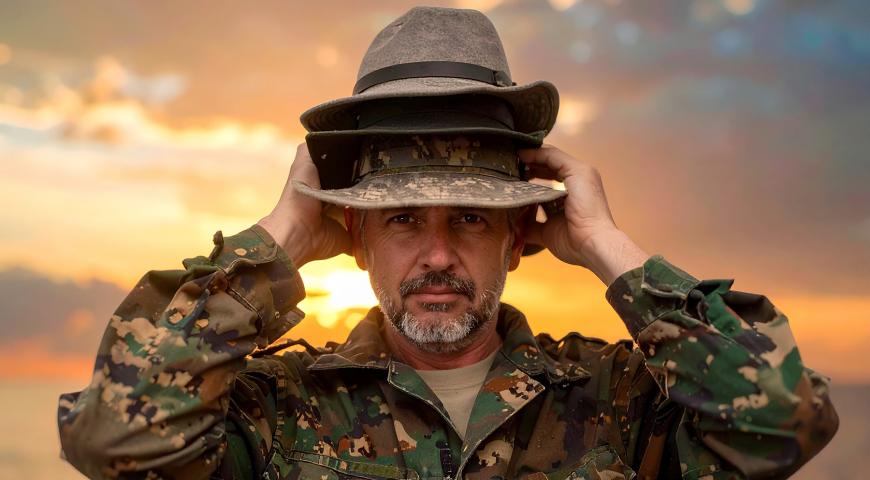Humility, relevance, engagement and professionalism are leadership qualities that not only inspire those around you, they ensure that our evolving Defence culture is capable of producing ‘good human beings’.
Culture permeates every aspect of an organisation, and when organisational culture does not align with strategic goals, optimal performance is rendered impossible to sustain. In this article I will discuss one of the most innovative elements of the Air Force Strategy (AFSTRAT) released in September 2020, an element that purposefully links culture to strategy and makes them completely indivisible. I’ll also explore the four most common leadership behaviours that I believe can be operationalised at the most tactical of levels to ensure our people are living the Defence values and meeting our strategic goal of evolving culture.
As a Senior Enlisted Leader I had a crucial need to understand AFSTRAT, but I also had a grounded curiosity in why this new strategy was so different from historical guidance and how this difference could be translated into everyday leadership and action.
AFSTRAT outlined the five Lines of Effort (LOE) and the subsequent strategic directions associated with Integrated Air and Space Power for the Joint Force:
- Delivering air and space power as part of the joint force
- Developing an intelligent and skilled workforce
- Deepening relationships, strengthening engagement
- Evolving Air Force culture
- Agile and coherent governance
For me, the most pivotal line of effort is LOE 4 – ‘Evolving Air Force Culture’.
‘Culture Eats Strategy for Breakfast’ – Peter Drucker
Let me clarify my reasoning for quoting Drucker. I’m not for one moment stating that strategy is unimportant and I’m quite sure Drucker isn’t either! However, I’m of the opinion that a military organisation—or any organisation for that matter—with a strong, coherent and empowering culture has a much better chance of achieving their strategic objectives than those whose culture is misaligned with their strategy. What is the point of having a strategy if cultural chaos prevents its execution?
A pivotal part of fostering a powerful culture relies upon the individuals within it holding themselves (and each other) to a particular standard of behaviour and values. To this point, I believe individual ‘accountability’ assists in the building of trust and psychological safety to be able to call out behaviours which don’t adhere to our organisational values set.
The Australian Defence Force (ADF) lists Service, Courage, Respect, Integrity and Excellence as its organisational values set and requires each member to live these values, both in and out of uniform. Accordingly, if culture does indeed ‘eat strategy for breakfast’, then the Chief of Air Force’s (CAF) intent statement—that culture is indivisible from strategy—is a salient point that requires deeper understanding across the workforce.
So, what can we do to ensure we are living these values? First and foremost, concentrating on being a ‘good human’ naturally assists us in achieving this, but more importantly, gives us a single focus. So, how do we be ‘good humans’ within a military context? My discussions with the Air Command workforce centred on four key leadership behaviours to help achieve this: be humble; stay relevant; stay engaged; and be professional.
Be Humble
‘Humility is not thinking less of yourself, it’s thinking of yourself less’ – C.S. Lewis
Nothing gets more in the way of us developing lasting and fruitful professional working relationships than our own ego. Ego causes competition, and competition—in its worst form—gives rise to constrained information sharing and, ultimately, distrust. Trust is the foundation of psychological safety, and psychological safety is the strongest basis for high-performing teams that enables and empowers every individual within. Being humble gives us the ability to listen to another person’s perspective, as well as enabling us to form opinions based on multiple points of view.
But what does being humble look like?
‘I’ve failed over and over again in my life, and that is why I succeed’ – Michael Jeffrey Jordan
Seeking feedback from colleagues on how they view their interactions with you certainly helps. Additionally, seeking to overcome our own biases (or at least recognising them) will help to reduce personal prejudices. Lastly, acceptance of failure and the ability to learn from those failures teaches humility in that we can’t always ‘get it right the first time’.
Stay Relevant
‘In order to stay relevant, you have to stay open to new trends and keep educating yourself. You have to keep evolving!’ – Natalie Massenet
Staying relevant is one of the biggest challenges to modern military leaders, especially as we progress through the ranks. Regardless of where you sit in the organisation, having an appreciation, or access to an appreciation, of workforce concerns at the tactical and operational level will enhance one’s credibility with the people you are leading. Most Defence members have worked with or for leaders who have lost touch with the younger generation, particularly in relation to communication. Understanding how younger personnel communicate and potentially incorporating this into your own communication style helps build trust and rapport.
For example, I look to remain relevant with the younger generation via the use of social media. Whilst the use of social media platforms didn’t come naturally at first, I found it certainly helped to bridge the ‘generation gap’ and give me a better understanding of the many and varied mediums the younger generation use to communicate with each other.
I recall a conversation not too long ago where a junior member of Air Force stated to me, ‘Hey Sir, if you need to get me some information quickly, send it to me via Snapchat as I only get the chance to read my emails once a week’. Admittedly, I scoffed at first hearing this advice, however, it wasn’t too long afterwards that I thought ‘what a great idea’, especially for information dissemination of an unofficial and/or unclassified nature.
To stay relevant as military leaders, we also need to have an understanding and appreciation of the challenging landscape in relation to young people wanting broader employment skill sets. For many junior Aviators, a career in the military may just be the first stepping stone for more long-term career aspirations outside of it. Our challenge is to ensure that we make retention as attractive as possible, noting that flexible workforce employment through varied service categories is a relatively new framework that offers the organisation the opportunity to retain personnel skill sets, even on a part-time basis.
Stay Engaged
‘Engaged employees work with passion and feel a profound connection to their organisation. They drive innovation and move the organisation forward’ – Gemma Robertson-Smith & C. Markwick
The silver lining in regards to the management of personnel throughout the COVID-19 pandemic has been the re-emergence of the importance of remaining engaged with our people. Pre-pandemic, we were much more likely to assume our people were doing okay because we interacted with them every day. Even though there are still challenges with workforce engagement, we’ve seen a renewed focus from leaders across the organisation in staying engaged with their people by use of applications such as Zoom or GovTEAMS and the more recent Chief Information Officer Group (CIOG) initiative, Skype for Business. This engagement shouldn’t be undervalued when it comes to ensuring human connectivity when working from home or limitations on people attending the workplace.
But what was does ‘engagement’ mean?
Asking our personnel what their goals or aspirations are is a good starting point in seeking to understand how we can best support them in achieving these goals. Furthermore, some of the best military leaders I work with take a genuine interest in their work colleagues’ family lives and personal interests, which goes some way to creating mutual respect and understanding, regardless of rank difference—humans are all human, after all.
Be Professional
‘Being professional is not being smart, active or clever, rather, it is to understand the ethical aspect of the profession and be devoted and dedicated towards it’ – Dhawal Solanki
Staying professional in our interactions with each other, as well as in how we conduct our duties, is the foundational element of being a ‘good human’ in the military context. Professional Mastery fosters a respectful culture whilst also ensuring a good reputation both individually and organisationally. Being professional encompasses the way you carry yourself, your attitude, and the way you communicate with others—regardless of whether you agree with another person’s viewpoint or not. It’s okay to disagree! In fact, I for one welcome a difference of opinion as it challenges my own cognitive bias, broadens my perspective, encourages empathy, and enables me to stay relevant with the workforce which I’m charged with the responsibility of representing.
Being professional in our interactions with each other also promotes and encourages diversity. Diversity of opinion, ideas and experience all lead to the best possible outcomes for Defence. Being professional operationalises our ADF value of ‘Respect’.
Conclusion
Successfully evolving culture within Defence, be it AFSTRAT or another service-specific culture initiative, will require Defence employees to live Defence values by—first and foremost—‘being good humans’.
Being humble prevents runaway ego, encourages psychological safety, and allows us to fail fast, learn fast and recover quickly. Staying relevant ensures that we don’t lose touch with the younger generations and contemporary workplace issues. It provides us with the ability to pass on the wisdoms that our generations have learned through time in service to make sure that the mistakes of the past are not repeated. Staying engaged increases employee satisfaction, contributes towards lower rates of absenteeism and, in an economic climate of increased demand for skilled personnel, makes higher retention rates more likely. Lastly, being professional reduces the likelihood of conflict in the workplace, ensures our organisation’s hard-earned reputation is maintained, and fosters mutual respect amongst all employees.
Fundamentally, the four leadership behaviours of being humble, staying relevant, staying engaged and being professional will support our ADF values, inspire our junior workforce, encourage values-based and ethical leadership, and ensure that our culture has the right settings to execute AFSTRAT and other service specific culture initiative's in times of peace, war and crisis.
Biography
Ken Robertson, OAM, is the Warrant Officer Joint Operations (WOJOPS) at Joint Operations Command with responsibility to Commander Joint Operations as the Command Senior Enlisted Leader. He has served in a range of operational and training E-9 appointments including multiple overseas deployments to Afghanistan and the Middle East region.
Twitter: @WOJOPS_Aust
The original article was first published at airpower.airforce.gov.au
Social Mastery
Please let us know if you have discovered an issue with the content on this page.
Comments
Start the conversation by sharing your thoughts! Please login to comment. If you don't yet have an account registration is quick and easy.




